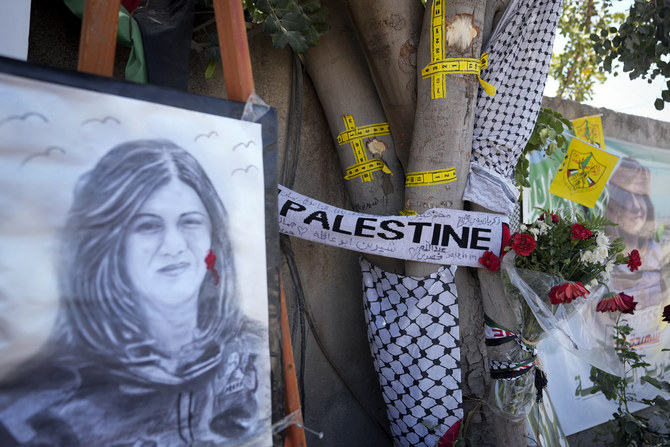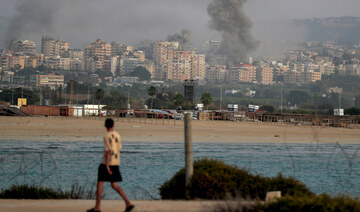NEW YORK: The killing of Palestinian-American journalist Shireen Abu Akleh in Jenin in the West Bank and the subsequent excessive use of force by Israeli police against mourners at her funeral were again a key focus of a UN Security Council meeting held on Thursday to discuss the latest report on the situation in the Palestinian territories.
Council members condemned Abu Akleh’s killing, and reiterated their calls for an independent and transparent investigation into her death, while Tor Wennesland, the UN special coordinator for the Middle East peace process, said that “those responsible must be held accountable.”
US permanent representative to the UN Linda Thomas-Greenfield described Abu Akleh’s “heart-wrenching killing” as a “tragic loss and an affront to press freedoms everywhere.”
She strongly condemned the killing, and called for “an immediate, thorough, transparent and impartial investigation,” adding: “And upon the conclusion of an investigation, we expect full accountability for those found responsible.”
Thomas-Greenfield said that Abu Akleh’s death was compounded by the violence at her funeral procession.
“We have directly shared our concern with Israel regarding the troubling footage of Israeli police intruding on the procession,” she said.
The US envoy called on all parties to honor Abu Akleh by “redoubling” peace efforts.
Former and current European members of the Security Council also reiterated their call for an investigation into Abu Akleh’s killing and expressed shock at “the violence exercised by the Israeli police toward mourners at her funeral.”
In a joint statement issued after the Security Council meeting, EU members France, Ireland and Estonia, joined by Albania, deplored the decision by the Israeli Higher Planning Council on May 12 to advance plans for the construction of more than 4,000 housing units in the occupied West Bank.
The statement urged Israel to rescind that decision, as well as abandon planned demolitions and evictions, especially in Masafer Yatta area, which alone could result in the forced transfer of 1,200 people.
Condemning all attacks against journalists, Wennesland said that Abu Akleh’s death “brought Palestinians and countless others around the world together in grief and anger, while serving as another reminder of the devastating human cost of this conflict.”
The special coordinator also lamented “the familiar pattern of daily violence, including armed clashes, settlement expansion, evictions, demolitions and seizures of Palestinian structures, as well as a deadly terrorist attack in Israel.”
The daily violence has left 10 Palestinians, including a woman and three children, dead and 346 Palestinians, including 24 children, injured.
Those deaths and injuries at the hands of Israeli security forces occurred during demonstrations, clashes, and search-and-arrest operations, said Wennesland.
He said that Israeli settlers and other civilians have carried out 57 attacks against Palestinians, resulting in one Palestinian child being killed, 24 injuries and damage to Palestinian property.
Meanwhile, four Israeli civilians and one Israeli security personnel were killed and 22 civilians and 20 security personnel injured by Palestinians in shooting and stabbing attacks or clashes involving the throwing of stones or homemade incendiary devices.
Wennesland also called for urgent attention to the Palestinian Authority’s “dire” financial situation, “compounded by the constraints of the occupation, the absence of serious Palestinian reforms and unclear prospects for donor support.”
He said: “Without meaningful policy steps on the part of Israel, bold reforms on the part of the PA and increased donor support, these economic challenges will continue.”




























